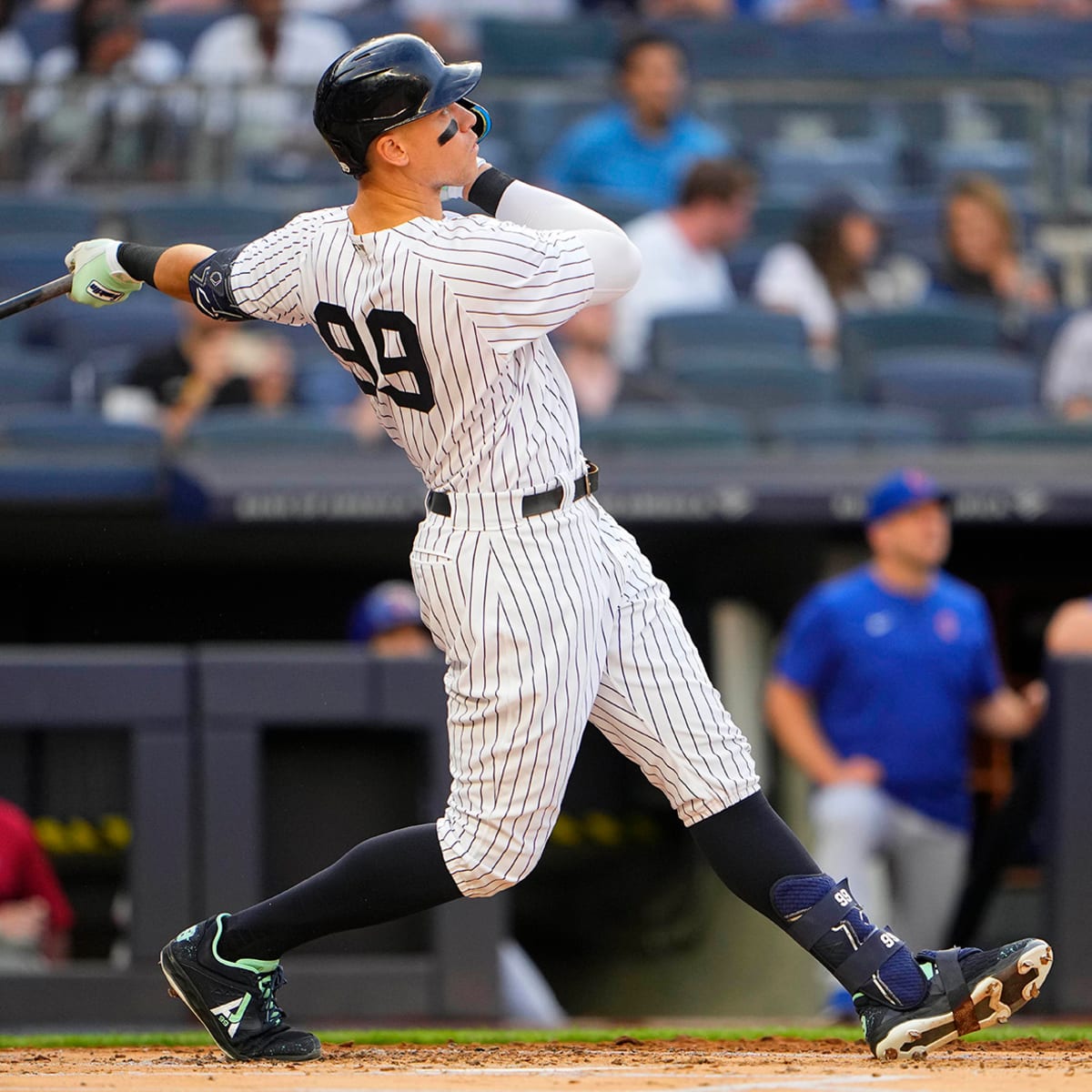The future of Aaron Judge

Since I’m not in the mood to talk about nuclear war this morning, I’m going to turn to the calmer and more lyrical waters of the impending free agent bidding war for the services of New York Yankees outfielder Aaron Judge.
Judge is having a historic season (btw I really hate the twee usage “an historic,” as if we’re all Oxbridge professors aspirating our aitches), with an adjusted OPS of 210 — a figure exceeded in major league baseball history only a handful of times, almost all of them by Babe Ruth, Ted Williams, and Barry Bonds, who are clearly the three greatest hitters ever.
Judge turned down a long-term contract offer from the Yankees in the spring, which is a decision that is now going to pay off spectacularly for him, as he becomes a free agent this coming winter.
Looking at Judge’s career to this point, I think he’s almost certainly going to be the most overpaid player in the league for the next decade, and that the contract that he signs in a few months will end up being considered pretty much a disaster by whatever team wins the auction for his continuing services.
Reasons:
(1) He’s going to be 31 in April. This, historically, is the exact age at which major league baseball players begin on average to decline in ability because of aging effects. Almost all players decline in ability somewhat in their early 30s, and decline substantially in their mid-30s. There are some exceptions, many if not most of which can be traced to pharmaceutical interventions that are technically and to some extent now practically prohibited, but this is the general rule. Signing a 31-year old to a long-term deal is almost always buying into a stock at or close to its peak, with severe long-term decline in its value pretty much guaranteed.
(2) Injuries. Judge has been quite injury-prone over his surprisingly short major league career. He was a 25-year-old rookie, which is a very old rookie age for a great player. This too is a negative when evaluating him going forward. He has to this point had only three seasons in which he’s accumulated a qualifying total of plate appearances, meaning enough plate appearances to qualify for things like league-leading batting percentages. He also missed all of what was supposed to be his first minor league season in 2013 with an injury. At 6’7″ Judge is one of the tallest players in major league history, and impressionistically speaking it seems that really tall players may be particularly prone to certain sorts of injuries. In Judge’s case I’d be leery of potential back-related maladies, given his height and the enormous torque he generates with his swing. I mean maybe he’s just had bad luck to this point, but a player who has a history of getting hurt is generally going to continue to get hurt.
(3) Track record. Judge has now had two unambiguously great years, and three very good but clearly below MVP-consideration level seasons in his career, along with the COVID season which we can disregard for these purposes. My take is that he’s obviously an outstanding player, but one that is having what clearly seems to be a career year, that in retrospect is very likely to be by far the best season of that career. That’s exactly the worst moment to sign a player to a long-term deal.
(4) Precedent. The most comparable players from a free agent contractual standpoint, at least in recent years, have produced disastrous signings. Albert Pujols signed a monster 10-year deal at age 32, and immediately went into a steep decline. Miguel Cabrera signed an equally monstrous eight-year deal at age 33, had one All-Star level season, and has been a replacement level player in the six seasons after that.
BTW I think it’s quite interesting that baseball is pretty much the only major professional sport in the world that features fully guaranteed contracts of this sort of extreme length.
In any event, giving a soon to be 31-year-old injury-prone player a massive long-term contract is pretty much a recipe for disaster, in purely competitive terms (I’m not referencing the extent to which if any it’s worth signing Judge because he’ll generate excess ticket sales and the like). But none of this is going to stop Judge from getting that sort of deal, which is also interesting in its own way.


